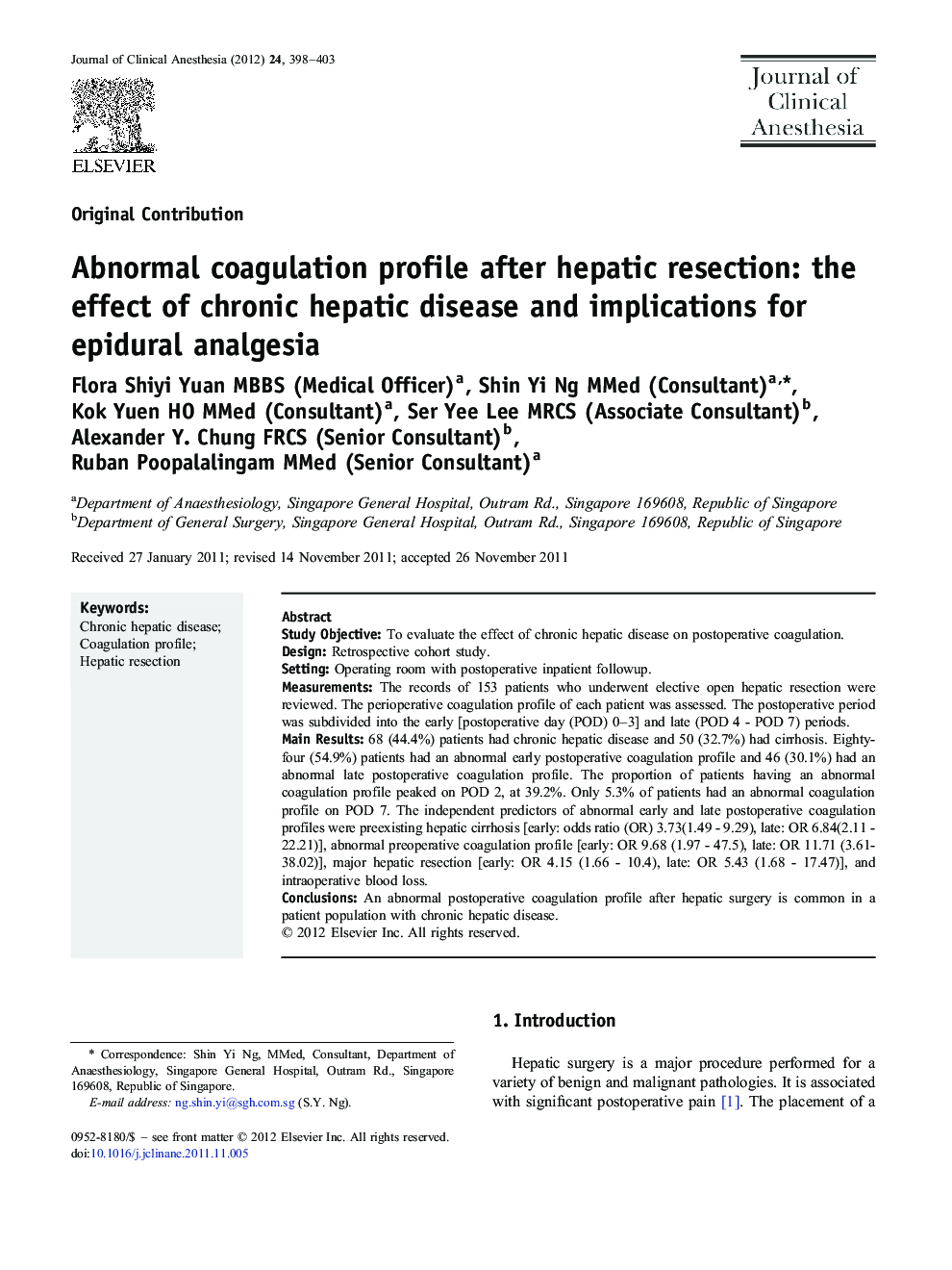| Article ID | Journal | Published Year | Pages | File Type |
|---|---|---|---|---|
| 2763120 | Journal of Clinical Anesthesia | 2012 | 6 Pages |
Study ObjectiveTo evaluate the effect of chronic hepatic disease on postoperative coagulation.DesignRetrospective cohort study.SettingOperating room with postoperative inpatient followup.MeasurementsThe records of 153 patients who underwent elective open hepatic resection were reviewed. The perioperative coagulation profile of each patient was assessed. The postoperative period was subdivided into the early [postoperative day (POD) 0–3] and late (POD 4 - POD 7) periods.Main Results68 (44.4%) patients had chronic hepatic disease and 50 (32.7%) had cirrhosis. Eighty-four (54.9%) patients had an abnormal early postoperative coagulation profile and 46 (30.1%) had an abnormal late postoperative coagulation profile. The proportion of patients having an abnormal coagulation profile peaked on POD 2, at 39.2%. Only 5.3% of patients had an abnormal coagulation profile on POD 7. The independent predictors of abnormal early and late postoperative coagulation profiles were preexisting hepatic cirrhosis [early: odds ratio (OR) 3.73(1.49 - 9.29), late: OR 6.84(2.11 - 22.21)], abnormal preoperative coagulation profile [early: OR 9.68 (1.97 - 47.5), late: OR 11.71 (3.61- 38.02)], major hepatic resection [early: OR 4.15 (1.66 - 10.4), late: OR 5.43 (1.68 - 17.47)], and intraoperative blood loss.ConclusionsAn abnormal postoperative coagulation profile after hepatic surgery is common in a patient population with chronic hepatic disease.
